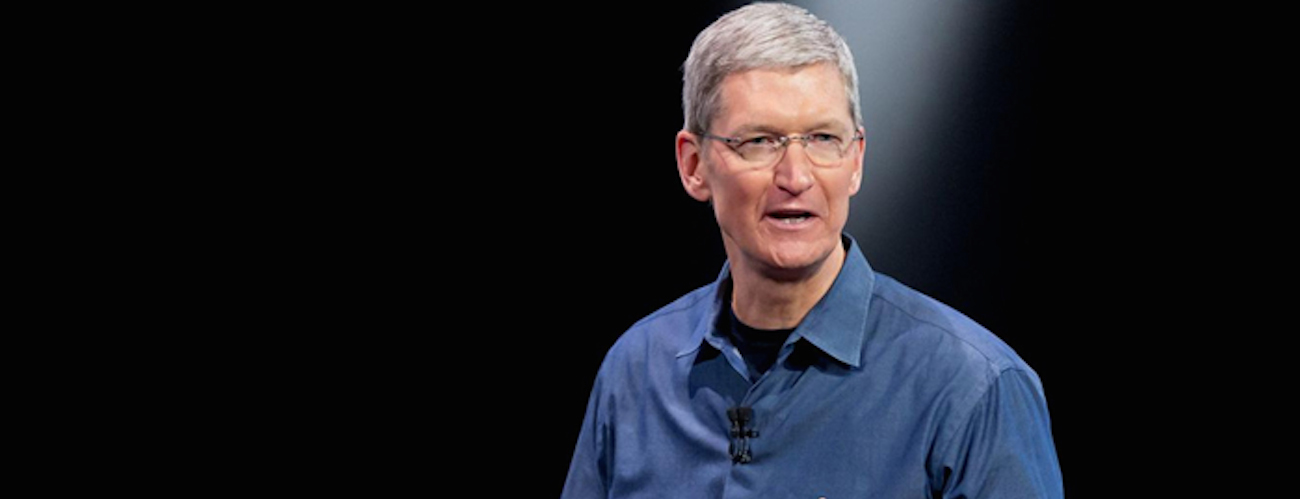Sign up for The Media Today, CJR’s daily newsletter.
In Time magazine’s latest issue, which is devoted to the theme of this year’s Davos conference—”Navigating the Fourth Industrial Revolution”—Apple CEO Tim Cook has an essay about one of his favorite subjects, online privacy. It’s a topic he has returned to again and again over the past few years, and the message is almost always the same: people deserve to have their privacy protected when they are on the internet or while using social services from certain companies (i.e., Facebook), but the current structure of things—the digital advertising–industrial complex—is designed to prevent this from happening. In his Time essay, Cook calls for comprehensive federal privacy legislation. “Consumers shouldn’t have to tolerate another year of companies irresponsibly amassing huge user profiles, data breaches that seem out of control and the vanishing ability to control our own digital lives,” he writes.
There are plenty of reasons to agree with Cook that privacy legislation probably should be updated, since the internet and data collection have become part of almost everything we do, and we know surprisingly little about how companies like Facebook use that data. But the subtext of many of these arguments is that only Apple cares about you and your privacy, and that it has no interest in surveilling you or your behavior, and therefore it is somehow more pure or ethical than those other tech companies. And it’s true that Apple doesn’t do anything like the kind of data-mining, active surveillance, and behavior-based targeting that Facebook and to a lesser extent Twitter and others do. One major reason why it doesn’t do this is that it doesn’t have to, since it generates billions of dollars in profit by selling physical hardware like MacBooks and iPhones. Since it isn’t primarily an advertising-based business, it doesn’t need to worry as much about things like targeting or data mining.
One thing that Cook and other Apple staffers rarely mention when talking about this topic, however, is that while the company may not engage directly in ad targeting or user surveillance, it still benefits in a significant way from those kinds of practices. In fact, it makes billions of dollars every year from them. Why? Because it has a contract with Google to feature the search giant’s toolbar in Apple products like the Safari web browser, a contract that is worth an estimated $9 billion—the vast majority of which is pure profit. Google’s search function allows people to find things they are looking for, but it also gives the company vast amounts of behavioral data that it uses in a variety of ways, including by tying that behavior to other Google products such as email. Cook’s diatribes about digital privacy would be a lot more sincere if he admitted that Apple currently gets paid handsomely to overlook its users’ privacy.
Your periodic reminder that Apple gets billions of dollars a year from Google — to enable Google's data harvesting/tracking/online advertising.
Tim Cook strangely doesn't mention this here: https://t.co/if7xihno46
— Shira Ovide (@ShiraOvide) January 17, 2019
That’s not the only area in which Apple is playing both sides of the privacy fence. Another example—one that is arguably even more serious—is the way Apple handles user privacy in China. As of last year, all of the user data stored in iCloud by Chinese citizens is under the control of state-owned China Telecom, which means that the government likely has access to whatever data it likes on Chinese users of the service (Apple says the data is encrypted, but the encryption keys are stored locally). And in China, tracking isn’t done for the purposes of ad targeting, as it is in North America and Europe—it’s done for actual targeting, so that dissidents can be identified and put on trial, or worse. Cook has said Apple had no choice but to comply with the Chinese government’s rules, but that probably isn’t much comfort to iCloud users. Apple also removed all VPN (virtual private network) apps from the iTunes store at the request of the government, because they can be used to hide a user’s location. Former Facebook security head Alex Stamos called Apple out on Twitter after a previous Cook speech.
https://twitter.com/alexstamos/status/1055192743033458688
One last point: apart from just appearing to be holier than everyone else in the industry, Apple arguably has a vested interest in promoting the idea of privacy regulation, because any regulatory oversight or complications stemming from such a move would by definition hit its competitors harder than it would Apple, and that could give the company a competitive advantage. If Google faces regulatory difficulties because of its data-collection policies, that might convince some users not to buy Android phones, and to opt for iPhones instead. Or it could convince people looking for cloud services to avoid Google Drive or Microsoft OneDrive and instead use Apple’s iCloud. Or it might just cripple them enough so that they don’t develop new and innovative services. None of this is to say that Cook’s passion about user privacy isn’t genuine—he may legitimately believe that data collection needs to be reined in, and he might even be right. But it’s also in Apple’s best interests to promote the idea that it is the only ethical actor in the entire tech industry, even if that isn’t actually the case.
ICYMI: What coverage of the viral Stephen King story overlooked
Has America ever needed a media defender more than now? Help us by joining CJR today.



